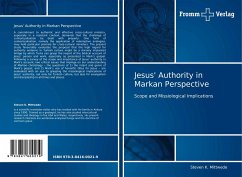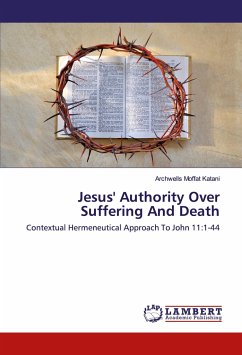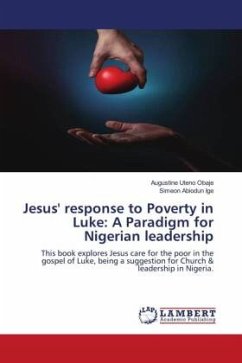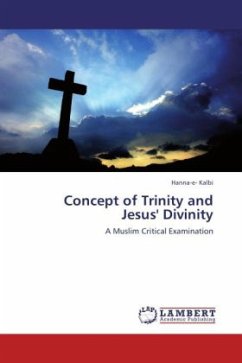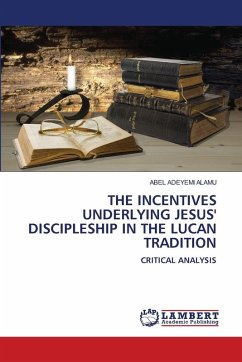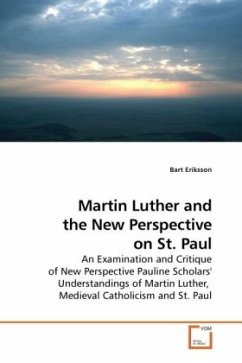
Jesus' Authority in Markan Perspective
Scope and Missiological Implications
Versandkostenfrei!
Versandfertig in 6-10 Tagen
32,99 €
inkl. MwSt.

PAYBACK Punkte
16 °P sammeln!
A commitment to authentic and effective cross-cultural ministry, especially in a resistant context, demands that the challenge of contextualisation be dealt with properly. One form of contextualisation, namely the application of redemptive analogies, may hold particular promise for cross-cultural ministers. The present study favourably evaluates the proposal that the high regard for authority endemic in Turkish culture might be a divinely implanted bridge by which Turks can grasp the import of the biblical account of Jesus' person and work, especially as presented in Mark's gospel. Following a...
A commitment to authentic and effective cross-cultural ministry, especially in a resistant context, demands that the challenge of contextualisation be dealt with properly. One form of contextualisation, namely the application of redemptive analogies, may hold particular promise for cross-cultural ministers. The present study favourably evaluates the proposal that the high regard for authority endemic in Turkish culture might be a divinely implanted bridge by which Turks can grasp the import of the biblical account of Jesus' person and work, especially as presented in Mark's gospel. Following a survey of the scope and importance of Jesus' authority in Mark's account, two critical issues that impinge on our understanding of Markan christology the questions of 1) the intent and genre of Mark's gospel, and 2) Mark's use of honorific titles for Jesus are evaluated with an eye to grasping the missiological implications of Jesus' authority, not only for Turkish culture, but also for evangelism and discipleship in all times and places.



